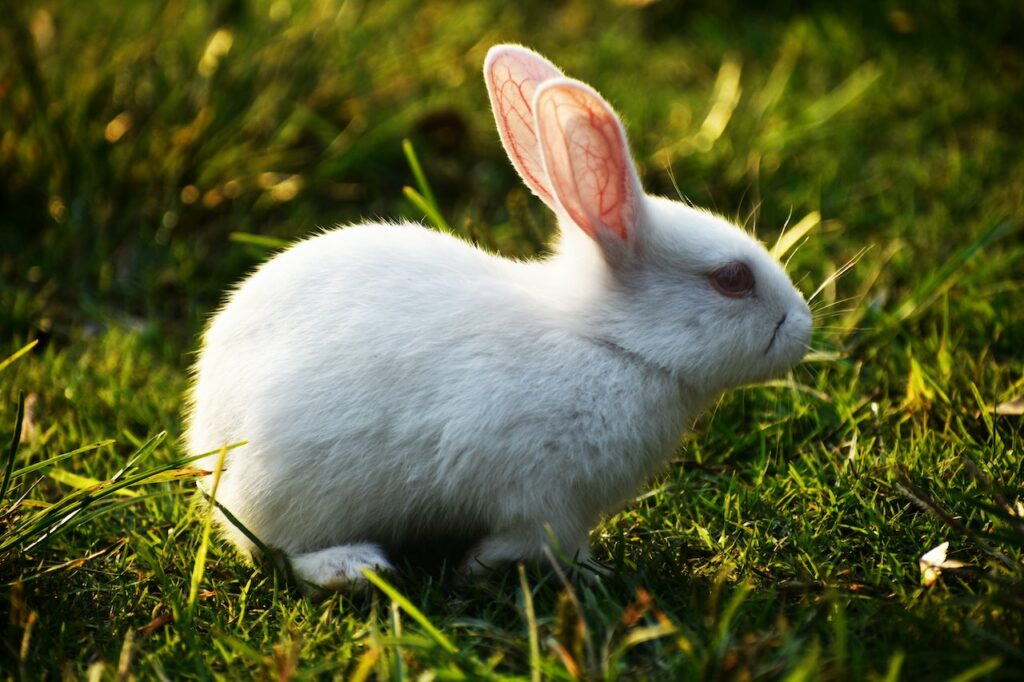What to do if Your Rabbit is Pulling its Fur Out
Welcome! If you’ve ever wondered why your rabbit has been pulling its fur out and what you can do to stop it, this article is for you. Not only will we dive into the scientific reasons behind why rabbits may pull their fur out, but we’ll also explore some practical steps that you can take to help prevent it.
We’ll look at the potential causes of hair loss in rabbits, such as mites, hormonal imbalances, or poor diet, and discuss the symptoms that often accompany fur loss.
Finally, we’ll outline some general methods of prevention and treatment for your rabbit’s hair loss so that you can give them a happier, healthier life.
So if you’re looking for more information on why your rabbit is pulling its fur out and how to stop it, keep reading!
What is Rabbit Fur Pulling, and Why Does it Happen?
Rabbit fur pulling, also known as wool-sucking or barbering, is a distressing behaviour demonstrated by domestic rabbits. It is characterised by the rabbit repetitively pulling out its fur and can lead to serious health risks. Occasionally rabbits will chew on the fur and consume it. Early intervention is essential.
What Can Cause Fur Loss in Rabbits?
1. Parasites:
– Skin mites, such as Cheyletiella, can cause skin irritation, which leads to hair loss.
– Ear mites, specifically the Psoroptes cuniculi and Otodectes Cynotis, are a common cause of hair loss in rabbits as they feed on tissue fluids and damage the skin.
– Fleas are another potential source of parasites that can cause hair loss in rabbits by causing intense itching and scabbing.
– Intestinal parasites that may lead to hair loss include Eimeria spp., Giardia spp., and Coccidia spp. These parasites interfere with nutrient absorption or cause inflammation of the mucosal lining of the gastrointestinal tract, leading to poor nutrition and hair loss.
2. Nutritional Deficiencies:
– A lack of necessary vitamins and minerals can cause poor coat quality in rabbits due to inadequate nutrition.
– Vitamin A deficiency is particularly concerning for rabbit fur health since it affects cell growth and metabolism for healthy skin healing and fur production.
– Deficiencies in iron, zinc, calcium, selenium, vitamin B6, biotin, folic acid, thiamine (B1), and niacin (B3) have all been linked to hair loss in rabbits due to their role in coat health maintenance.
3. Hormone Imbalances:
– Unbalanced sex hormones can cause alopecia or bald patches due to decreased levels of testosterone or estrogen, leading to impaired follicle growth and regeneration.
– Hypothyroidism is a condition caused by inadequate hormone production from the thyroid gland, resulting in decreased fibre growth rate, increased shedding, and possible bald patches on the rabbit’s coat.
4. External Stressors:
– Heat stress is a common issue that causes temporary fur loss in the rabbit’s body. It increases blood circulation near its surface, leading to shorter hairs and decreased volume over time.
– Allergies caused by environmental irritants or food sensitivities can also lead to issues with inflammation throughout the skin.
-Dust mites are a common external factor that causes allergic reactions leading to these types of issues when present in high numbers around bunnies susceptible subjects
– Other allergens such as pollen or mould spores may also contribute if present close enough to a rabbit’s environment when not adequately protected against them through good housekeeping practices or other protective measures like air filtration systems etc.
5. Internal Disease Processes:
– Certain conditions can all lead directly or indirectly lead to fur loss. They include:
- fungal infections (i.e., ringworm),
- bacterial infections (i.e., staphylococcus),
- parasitic infestations (i.e., fleas),
- viral diseases (i.e., papillomatosis)
These ailments can cause fur loss through direct damage mechanisms or secondary effects from weakened immune system responses, allowing them more access to deeper layers of skin where they do more damage.
General Methods of Prevention and Treatment
- Regularly groom your rabbit to remove any loose fur or debris.
- Provide a balanced diet emphasising fresh hay, vegetables, rabbit pellets, and occasional treats from rabbit-safe snacks.
- Ensure access to clean water for proper hydration and nutritional absorption.
- Give your rabbit plenty of stimulating toys, activities, and companionship to reduce boredom and stress.
- Take your rabbit to the vet regularly for checkups and screenings for parasites, allergies, mites, infections or other underlying conditions that could be causing fur-pulling issues.
- Keep your rabbit’s environment free of dust and other potential allergens by practising good housekeeping and using air filtration systems.
- Administer your rabbit’s medications or supplements correctly to ensure the best effects.
- Finally, if all else fails, consider consulting with a rabbit behaviourist who can help find the root cause of your rabbit pulling its fur out and offer further advice on stopping it.
Wrap Up
Keep your rabbit happy and healthy! Rabbits are adorable and fluffy, but they can also be a lot of work. They need regular vet checkups to ensure they’re healthy and that there aren’t any underlying issues causing them to pull out their fur. That’s why it’s important to have insurance for your rabbit. That way, you can rest assured that you’ll have the resources to take care of your rabbit properly, no matter what happens. That way, you can enjoy more rabbit cuddles without worrying about what might happen next.
That’s it for now! Happy rabbit-keeping! With the right preventative measures and an understanding of why rabbits pull their fur out in the first place, rabbit owners can rest easy that they’re doing all they can to keep their furry friends safe, healthy, and as stress-free as possible.
Read more about how to care for your rabbit at furrr.co.uk










